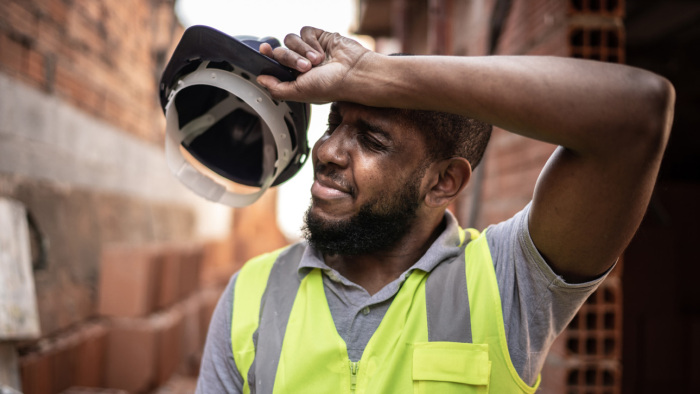
Heat Exhaustion: Symptoms, Signs, Treatment, and Recovery
As global temperatures continue to rise, heat exhaustion is becoming a more frequent and dangerous health concern. But even inside or in cooler environments, heat exhaustion can become an issue during physical activities. Whether you're working outside, exercising in the summer heat, or exposed to high temperatures indoors, it's essential to understand what heat exhaustion is, how to recognize its symptoms, and how to treat it effectively.
What Is Heat Exhaustion?
Heat exhaustion is a heat-related illness that occurs when your body overheats due to prolonged exposure to high temperatures—especially when combined with dehydration and physical exertion. It's one of the stages of heat illness, and if not addressed promptly, it can lead to heatstroke, which is a medical emergency.
Heat Exhaustion Symptoms and Signs
Recognizing heat exhaustion symptoms early can prevent serious complications. The most common symptoms of heat exhaustion include:
- Profuse sweating
- Weakness or fatigue
- Dizziness or lightheadedness
- Nausea or vomiting
- Muscle cramps
- Headaches
- Pale, clammy skin
- Rapid, weak heartbeat
- Confusion or irritability
- Fainting in extreme cases
These signs of heat exhaustion signal that the body is struggling to regulate its temperature and is losing essential fluids and electrolytes. If you notice these signs in yourself or someone else, take immediate action.
How to Treat Heat Exhaustion
Knowing how to treat heat exhaustion quickly can prevent it from escalating to heatstroke. Follow these steps:
- Move to a Cool Place: Get out of the sun and into a shaded or air-conditioned environment.
- Hydrate: Drink plenty of water or an electrolyte-replenishing sports drink. Avoid caffeine and alcohol.
- Cool Down the Body: Use cold compresses, take a cool shower, or apply damp cloths to your skin.
- Remove Excess Clothing: Loose, lightweight clothing allows your body to cool more effectively.
- Rest: Sit or lie down with your legs elevated to improve circulation.
If the person does not start feeling better within 30 minutes, or if symptoms worsen, seek medical attention immediately. Untreated heat exhaustion can rapidly progress to heatstroke.
How Long Does Heat Exhaustion Last?
One of the most common questions is, how long does heat exhaustion last? Mild cases often improve within 30 minutes to a few hours after proper treatment. However, full recovery can take up to 24–48 hours depending on the severity, your overall health, and how quickly treatment began.
Even after symptoms subside, it's best to rest and avoid further heat exposure for at least a day. Some people may feel lingering fatigue or sensitivity to heat for a few days.
Preventing Heat Exhaustion
Prevention is always better than cure. Here are simple ways to avoid heat exhaustion:
- Drink water regularly, even if you’re not thirsty.
Wear breathable, light-colored clothing. - Avoid outdoor activity during peak sun hours (usually 11 AM–4 PM).
- Take frequent breaks in shaded or cool areas.
- Use fans, cooling towels, cooling vests, cooling headgear or cooling shirts to regulate body temperature.
- Eat light meals and avoid heavy, salty foods in hot weather.
Final Thoughts
Understanding what heat exhaustion is, recognizing the symptoms of heat exhaustion, and knowing how to treat heat exhaustion quickly can save lives—especially during heatwaves or in hot working environments.
If you or someone near you shows signs of heat exhaustion, act fast to cool down, rehydrate, and rest. Knowing how long heat exhaustion lasts helps in planning your recovery and avoiding future episodes. Stay safe, stay cool, and always listen to your body when the temperature rises.